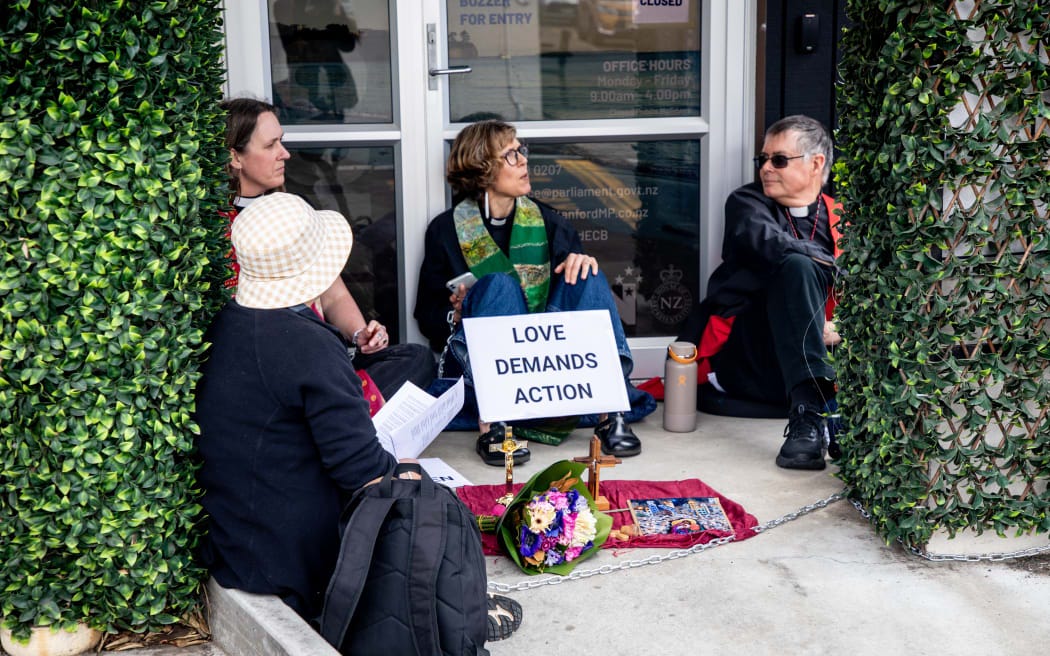Priests chain themselves to Erica Stanfords office in political stunt
What happened to the power of prayer?
Three Anglican priests have chained themselves to the electorate office of Immigration Minister Erica Stanford in Browns Bay today, demanding New Zealand recognise Palestinian statehood.
The clerics described the action as an act of “Christian witness” and claimed they were standing in solidarity with the people of Gaza. They cited Jesus’s teachings on f…




